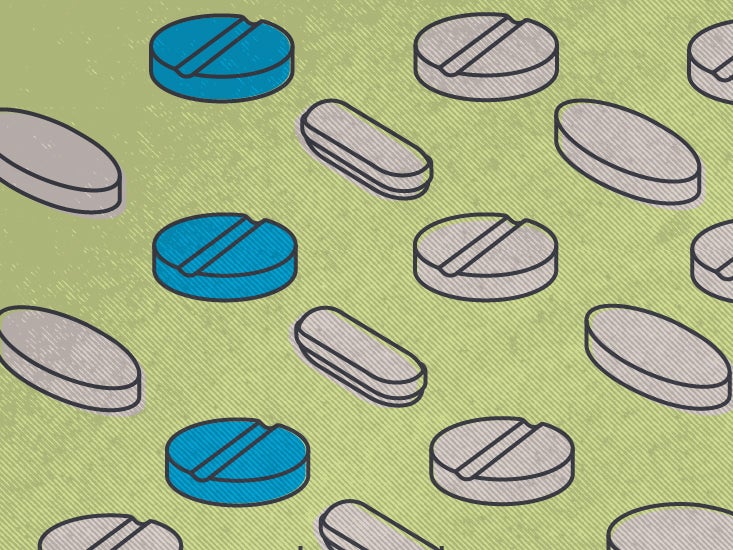Tavalisse: Side effects, cost, how it works, alternatives, and more - Medical News Today

Tavalisse can cause mild or serious side effects. The following lists contain some of the key side effects that may occur while taking Tavalisse. These lists do not include all possible side effects.
For more information about the possible side effects of Tavalisse, talk with your doctor or pharmacist. They can give you tips on managing any side effects that may concern or bother you.
Note: The Food and Drug Administration (FDA) tracks side effects of drugs it has approved. If you would like to notify the FDA about a side effect you've had with Tavalisse, you can do so through MedWatch.
Mild side effects
Mild side effects* of Tavalisse can include:
Most of these side effects may go away within a few days to a couple of weeks. If they become more severe or don't go away, talk with your doctor or pharmacist.
* This is a partial list of mild side effects from Tavalisse. To learn about other mild side effects, talk with your doctor or pharmacist, or see the Tavalisse prescribing information.
† For more information about this side effect, see "Side effect details" below.
Serious side effects
Serious side effects from Tavalisse aren't common, but they can occur. Call your doctor right away if you have serious side effects. Call 911 or your local emergency number if your symptoms feel life threatening or if you think you're having a medical emergency.
Serious side effects and their symptoms can include:
* For more information about this side effect, see "Side effect details" below.
Side effect details
Here are some details about certain side effects this drug may cause. To find out how often side effects occurred in clinical trials, see the prescribing information for Tavalisse.
High blood pressure
People who took Tavalisse in clinical trials commonly reported high blood pressure. It was usually mild, but some people experienced severely high blood pressure.
What you can do
Your doctor will likely have you monitor your blood pressure at home while you take Tavalisse. In most cases, they'll want to check your blood pressure in their office every 2 weeks until you're on a stable dose.* Your doctor will then usually monitor your blood pressure once every month to see if it's still at a safe level.
If your blood pressure increases, your doctor may prescribe medication to lower it. After you start taking the blood pressure drug, your blood pressure could remain high. In this situation, your doctor may decrease your dose of Tavalisse. If you have very high blood pressure that may become dangerous, your doctor may pause or stop treatment with Tavalisse.
* Your doctor may need to adjust your dose of Tavalisse to find the amount that works best for you.
Diarrhea
Diarrhea may occur with Tavalisse. This was one of the most common side effects of people who took Tavalisse in clinical trials. Most cases of diarrhea in the trials were mild. However, there were some severe cases of diarrhea reported.
What you can do
If you have diarrhea during your treatment with Tavalisse, talk with your doctor. They may recommend drinking more water and changing your diet. The goal is to ease the diarrhea and help prevent dehydration. In addition, your doctor may recommend a diarrhea medication.
If you have severe diarrhea, your doctor may decrease your dose of Tavalisse. Or they could pause or stop your treatment with the drug.
Low level of certain white blood cells
It's possible to develop a low level of certain white blood cells with Tavalisse. Although this was not a common side effect in people who took the drug in clinical trials, it still can occur.
Tavalisse may decrease the level of neutrophils in your body. These are white blood cells that help your immune system fight infection. With a low level of neutrophils, your immune system may weaken. This can increase your risk of infection. A low neutrophil level (called neutropenia) does not usually cause symptoms. However, an infection due to neutropenia may cause symptoms such as a fever, sore throat, or cough.
What you can do
If you develop symptoms of infection while taking Tavalisse, talk with your doctor. An infection may mean that your neutrophil level is low. Your doctor will monitor your neutrophil level throughout your treatment.
If you develop a low white blood cell level with Tavalisse, your doctor may pause your treatment. In some cases, they may decrease your dose. If your level is very low, your doctor may recommend a medication other than Tavalisse.
Allergic reactionAs with most drugs, some people can have an allergic reaction after taking Tavalisse.
Symptoms of a mild allergic reaction can include:
A more severe allergic reaction is rare but possible. Symptoms of a severe allergic reaction can include:
- swelling under your skin, typically in your eyelids, lips, hands, or feet
- swelling of your tongue, mouth, or throat
- trouble breathing
Call your doctor right away if you have an allergic reaction to Tavalisse, as the reaction could become severe. Call 911 or your local emergency number if your symptoms feel life threatening or if you think you're having a medical emergency.

Comments
Post a Comment